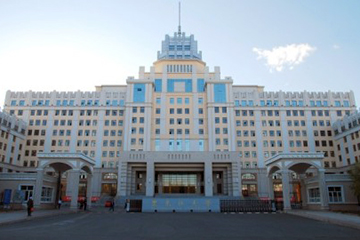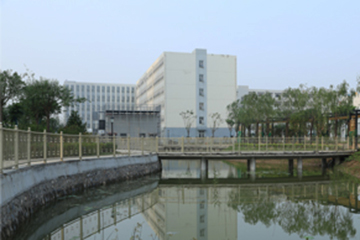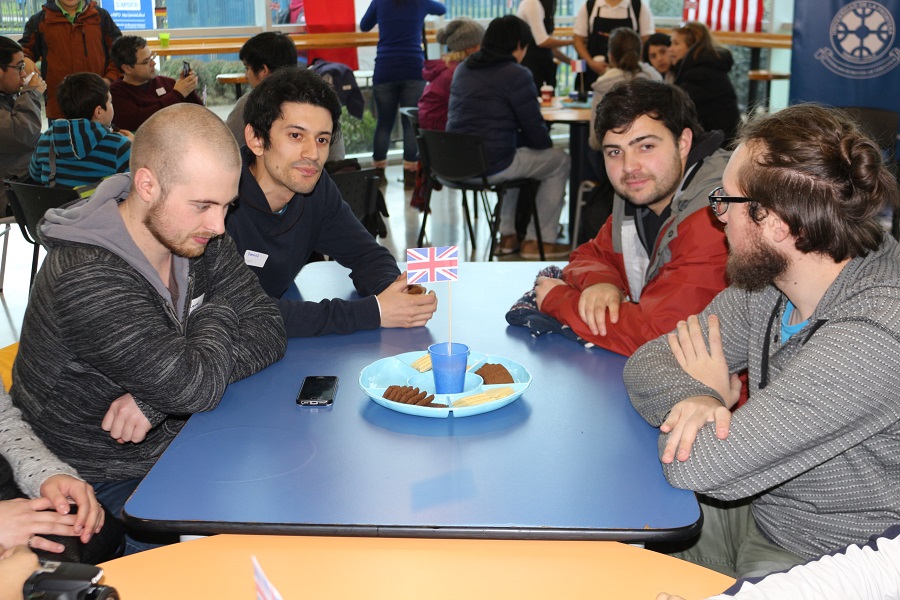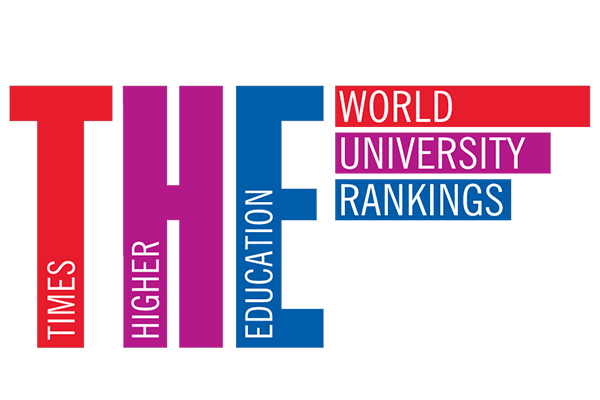|
The UFRO Chile participates in International EAIE Conference to position itself as destiny for European students |
The UFRO participates in the 29th Annual EAIE Conference and Exhibition 2017 in Seville, Spain, presenting the academic offer for undergraduate and postgraduate studies and the opportunities for international student mobility. Europe’s biggest Convention for higher education and student mobility will take place from 12-15 September 2017 at the Seville Conference and Exhibition Center (FIBES) in Spain. The theme of the 2017 conference is “A mosaic of culture” and institutions from all over the world are participating, including 16 educational establishments from Chile. The Universidad de La Frontera is also part of the delegation of national institutions that are present at the 2017 EAIE Conference. The UFRO representative is the director of the International Affairs Office, Dr. Pamela Leal, who will join the group of more than 200 exhibitors and 5 thousand representatives of higher education from all over the world who are coming to Seville. “The main continent where the foreign students in Chile come from is Europe. They come to Latin America in order to find a space for complementing their training and, of course, to live an international exchange experience”, said Dr. Pamela Leal. At the same time, she pointed out that Chile has a series of advantages and characteristics that transform the country into a privileged destiny for foreigners and in the case of the UFRO, the interest increases more and more. “At this international encounter, we want to share who we are as a University. Therefore we will present our offer of undergraduate and postgraduate studies and invite the Europeans to live a study experience at a state University of quality, in a region like the Araukania with its privileged environment because of its nature and culture”, she added. This annual conference is organized by the European Association for International Education (EAIE) and besides opening and showing the potential of international mobility, the aim is also to establish networks and strengthen the partnerships between different universities and countries.  Written by: Direction of Communications Written by: Direction of Communications |
|
The UFRO delegation will focus its activities on the Heilongjiang University and the Tianjin Agricultural University. |
One of the main goals of the Universidad de La Frontera is to extend and strengthen the international networks of collaboration. This time, a group of university authorities went to the People´s Republic of China in order to formalize a framework cooperation agreement and establish new relations.
 Written by: Jassna Sepúlveda Beltrán Written by: Jassna Sepúlveda Beltrán |
|
This activity, created by the Student Development Office, is open to the university community and permits to learn and practice seven languages at different tables, guided by a native speaker or a language expert. |
This Wednesday 6th of September, there will be another session of the UFRO Linguistic Café, which was created by the Student Development Office in cooperation with the Division of Student Orientation and Development, at the refectory Los Notros.
 Written by: Sergio Valenzuela Written by: Sergio Valenzuela |
|
Once again, the prestigious ranking places the UFRO as one of the best universities in Chile and in first place as a regional state university. |
Once again, the prestigious ranking places the UFRO as one of the best universities in Chile and in first place as a regional state university. The excellence of the Universidad de La Frontera is recognized and valued once again. This time by the Times Higher Education Rankings 2018, which ranks the UFRO in ninth place of the national universities and as number 1 of the regional state universities. This report of the THE World University Rankings 2018 judged the best universities in the world, a total of 1,102 institutions (121 more than in 2017), among which are 13 Chilean universities, 5 of them state universities. The UFRO stands out as the second best state university of Chile after the Universidad de Chile. In the global report, where the Times Higher Education Ranking judges research-intensive universities by using 13 performance indicators, such as teaching, research, knowledge transfer and international outlook, the UFRO is placed in the section 801-1000. The Times Higher Education Ranking is one of the most prestigious international rankings that evaluates the levels of complexity of universities. SCIMAGO INSTITUTIONS RANKINGS (SIR) 2017
The Scimago Institutions Rankings (SIR) 2017 report ranked the Universidad de La Frontera as one of the best universities in Chile, in 11th place at the national and in 84th place at the Latin American level (higher education area), climbing two places up compared to 2016. The SIR is based on three areas: research (50%), innovation (30%) and social impact (20%). At the general level, the UFRO is in the 78th percentile in research, the 57th percentile in innovation and in the 50th percentile in social impact.
 Written by: Direction of Communications Written by: Direction of Communications |
|
This seminar is a prelude for the Ibero-American Conference for Quality of Life, Sustainability and the Environment in 2018. |
With participation of national and international experts and with help of four tables of analysis, the seminar “Quality of Life, Sustainability and Environment” will take place at the Universidad de La Frontera, at the Auditorium Selva Saavedra on this Thursday, September 7th, starting at 8:30a.m.
 Written by: Jassna Sepúlveda Beltrán Written by: Jassna Sepúlveda Beltrán |










